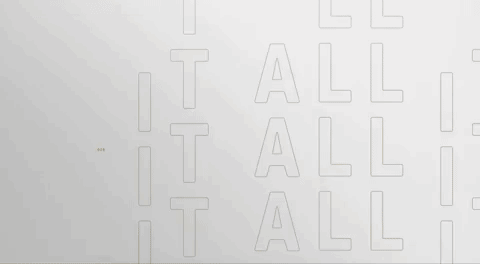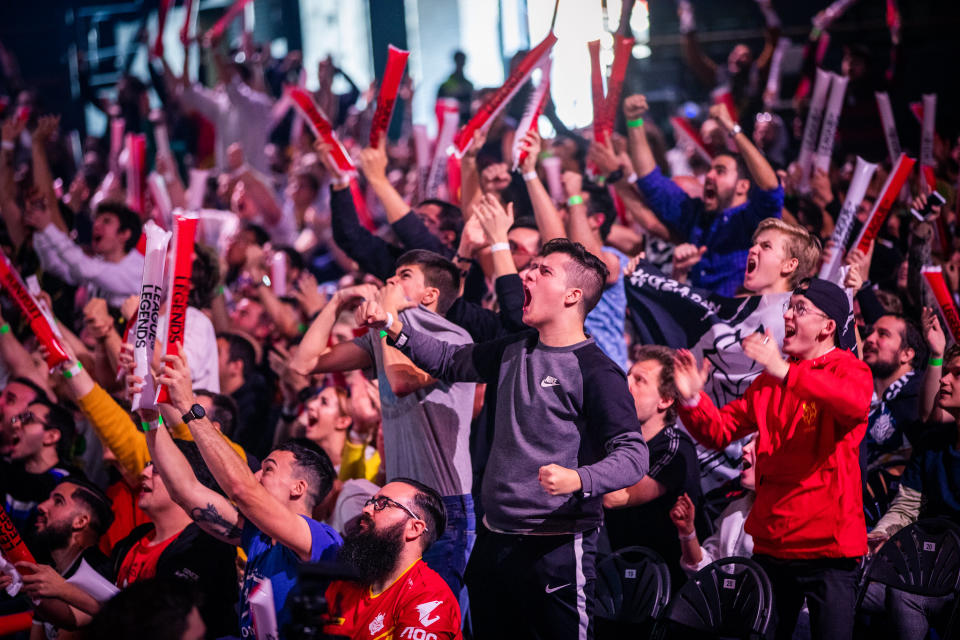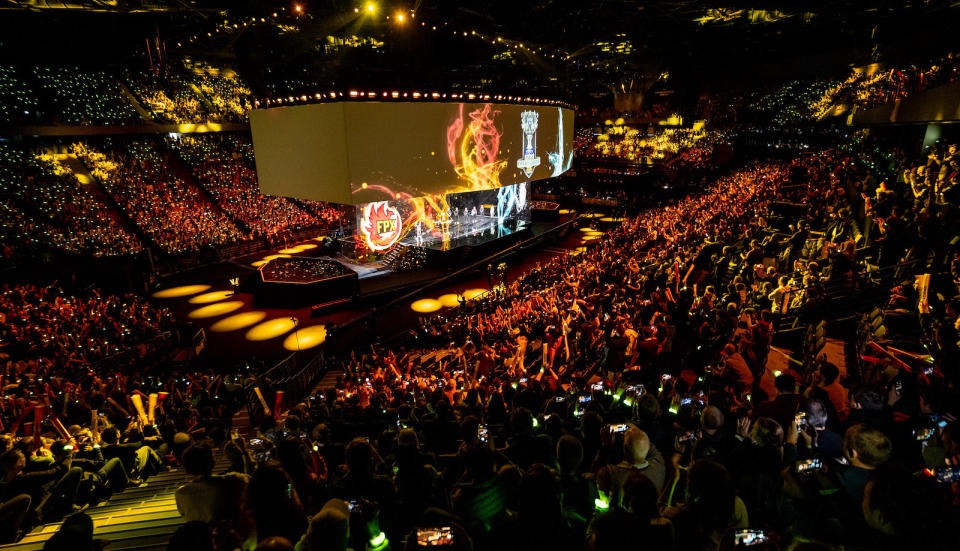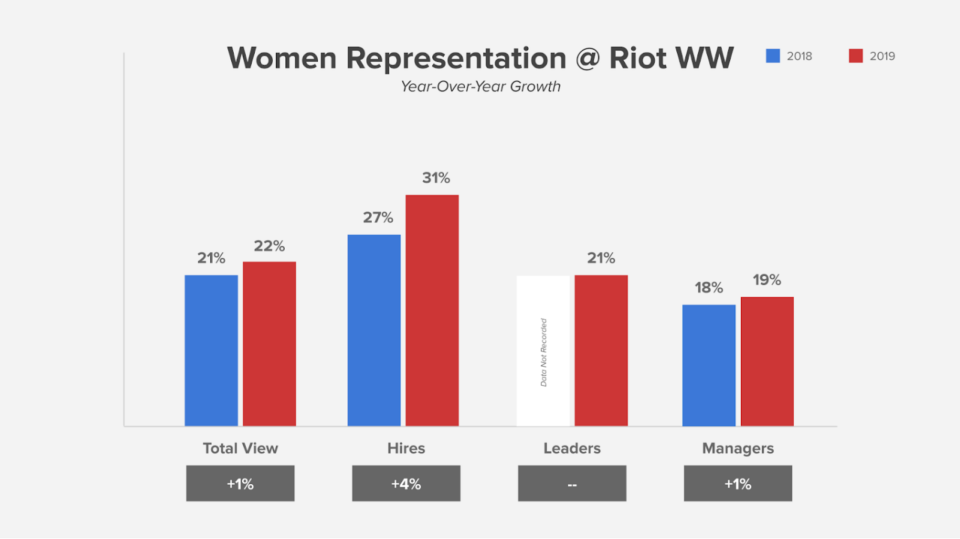Here's what the next 10 years of LoL Esports will look like
Riot rolls out a new logo, video series and a global take on pro ‘League of Legends.’
League of Legends fans, we hope you like cool tones, a touch of gold and minimalistic graphics, because that’s exactly what you’re going to see on the LoL Esports homepage for the next 10 years. That’s the plan Riot Games unveiled today, alongside a commitment to make all 12 regions of the LoL esports scene more accessible, and roll out fresh programming across YouTube and social media.
First, the unification efforts. There are 12 leagues in professional League of Legends: Europe (LEC), South Korea (LCK), China (LPL), North America (LCS), Brazil (CBLOL), Vietnam (VCS), Russia and the CIS (LCL), Turkey (TCL), Latin America (LLA), Japan (LJL), Oceania (OPL), and Taiwan, Hong Kong, Macau and Southeast Asia (PCS). South Korea, Europe and China have consistently dominated the World Championship leaderboards, with North America making scattered appearances in the Semi-Finals. These four leagues were among the first to be founded, with the LCK kicking off in 2012, and the LEC, LPL and LCS starting in 2013. The CBLOL was also founded in 2012, while the most recent addition, the PCS, began in 2020.
Riot has historically focused on its four main leagues -- North America, China, South Korea and Europe -- and has placed all nine Worlds events in these regions. Before the coronavirus pandemic shut down global activity, Worlds 2020 was slated to be hosted by China once again, and North America was on tap for 2021.

It’s a lot of information to take in at a glance, and until today’s rebrand, it was difficult to navigate the LoL esports ecosystem even on Riot’s own sites.
“Right now if you said, ‘Hey, I want to check out the LPL,’ and you went to our channels, you'd be lost, honestly,” said David Higdon, Riot’s global head of esports communications, just days before the new LoL esports hub went live. “It's very, very difficult. And we were just seeing these trends among our fans who are just seeking more of the best of the world, not just the best of the region.”
With the new LoL Esports hub, Riot will attempt to distill the most intriguing aspects of each league and present highlights, tournaments and schedules clearly for fans around the world. This move is designed to make it as easy as possible for anyone, anywhere, to consume League of Legends, and it couldn’t come at a more auspicious time.
Esports viewership is up overall amid global stay-at-home orders. Week one of the 2020 LCS Summer Split kicked off on June 12th, and it drew in 40 percent more peak concurrent viewers than last year, Higdon said. The LEC apparently saw even greater growth during this time.
“We had to do a lot of scrambling to make it work, but each of the regional leagues has kind of benefited from quickly pivoting to online competition,” Higdon said.

Revenue streams in esports stem partly from ad dollars and sponsorships with major companies, and these two areas are particularly crucial in 2020. Stadiums remain closed worldwide, cutting off potential revenue from ticket sales and event merchandising.
The LCS alone signed 11 new partners in 2019, including MasterCard, Honda, Red Bull, Rocket Mortgage, State Farm, Panasonic and Alienware, and most of them are under multi-year contracts. Already in 2020, the LCS has announced partnerships with more heavy hitters, including Verizon, Samsung and ESPN.
Riot also generates cash from its franchise model, where teams have to pay for a chance to compete in some leagues. For instance, this year the club Evil Geniuses purchased a spot in the LCS for $33 million, according to The Washington Post (there are 10 teams in the LCS). As of 2021, this franchise model will also be active across the LPL, LCK and LEC.
Despite the four main regions gobbling up most of the hosting duties, Worlds trophies and marketing dollars, Higdon said LoL esports fans want more from other leagues. It’s a trend Riot has been tracking over the past year, and today’s rebrand is an attempt to encourage this habit, making multi-region games and news more accessible than ever.

“We've had these big stages with major events, like World Championships, but we haven't really done a great job of pulling out what's great about each of these individual regions and really amplifying that,” Higdon said. “So the mission for someone like myself, who's focused on the global piece, is really what's happening in LATAM? What's happening in the LCK in Korea? How are things changing across each of these leagues? And let's not just myopically focus on one particular region over the other.”
The second stage of the rebrand is all about video. Riot plans to launch three video series across YouTube, Twitter and Facebook, each with a set schedule. The Weekly Rundown airs today, July 21st, and will provide a summary of LoL Esports news every seven days. The Penta will showcase five of the best pro plays from competitions around the globe, airing weekly starting July 22nd. Lastly, Champ Select will be hosted by LEC caster Quickshot, and feature personalities from four different regions arguing why their league had the most successful weekend. Champ Select will air every other week.
All of Riot’s moves today are about opening up League of Legends to more viewers, more players, more revenue streams. Higdon didn’t independently mention how diversity fit into this goal, but the ideas converge nicely -- inviting more people to enjoy the show naturally means welcoming different people into Riot’s universe. There are currently no pro League of Legends players who identify as female or non-binary, and a dearth of people of color particularly on Western rosters.

This phenomenon is prevalent across esports, but Riot is keenly aware of the conversation around diversity in the video game industry. The studio settled a class-action lawsuit in 2019, agreeing to pay at least $10 million to female employees following allegations of top-down sexism, harassment and gender-discriminatory policies. That same year, women accounted for less than one-quarter of all Riot employees, while underrepresented minorities composed just 9 percent of its US workforce.
When asked whether Riot developers thought about the role of inclusion in today’s rebrand, Higdon said, “It couldn't be a bigger priority within our organization.”
He continued, “We need to attract more female gamers to play League of Legends. We need to have a more diverse audience within the US and some of the Western regions. We need to kind of showcase the sport and have it be seen as something that everybody and anybody can enjoy.”
It all starts with a fresh logo.

